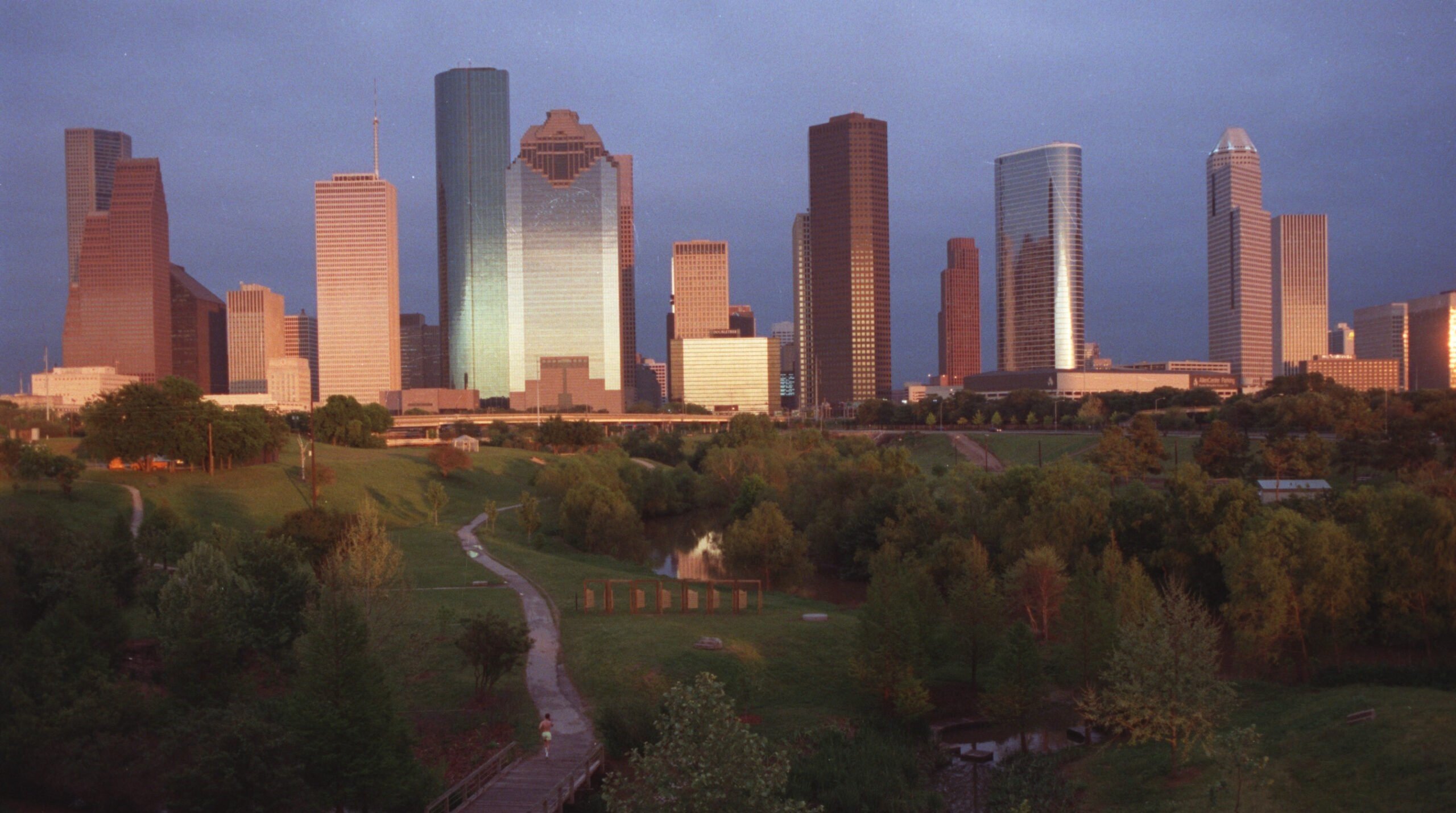
Pipeline Explosion in Deer Park Reveals Hidden Hazards Texans Face
The pipeline’s owner is “the same company that got $2.4 billion richer when Texans froze to death during Uri,” one activist points out.

One of the biggest explosions and fires in recent Texas pipeline history was apparently sparked by a disoriented SUV driver who took the wrong road out of an oversized Walmart parking lot in the Houston-area city of Deer Park Monday. The driver crashed through a fence and collided with the valve of a natural gas pipeline, causing a fire that immediately incinerated the vehicle and may have caused the vehicle operator’s doom.
“I felt the heat coming straight through my car window,” an alarmed motorist nearby told the Houston Chronicle.
At least four people were injured and five homes damaged by the fire involving a pipeline owned by Energy Transfer, a firm co-founded by the politically connected billionaire Kelcy Warren. It could have been much worse: An emergency order issued on Tuesday to shelter in place affected Walmart, an urgent care center, other busy businesses on Spencer Highway, plus more than 1,000 homes, San Jacinto College, and other nearby schools. (Some homes and businesses near the blaze were evacuated.) This kind of ritual is so common in these parts that the City of Deer Park has a video of a costumed oversized turtle character named Wally that it uses to remind children of the steps to follow.
Within hours, officials in Deer Park clarified that police and local FBI agents found no early evidence of any coordinated or “terrorist” attack and that “this appears to be an isolated incident.” But authorities were unable to say how soon the fire—fed by a stream of natural gas coming through the same ruptured pipeline—would be extinguished and speculated it could burn for days.

Energy Transfer, which took three hours to issue its first statement and initially erroneously reported that no one had been injured, wasn’t sure either: “The line has been isolated so that the residual product in the line can safely burn itself out. We have no timeline at this point on how long the process will take.” Harris County Judge Lina Hidalgo separately told reporters that the nearest shutoff valve to the fire was 20 miles away, meaning that natural gas remaining in that section would have to burn before the fire would go out.
Pipelines are overseen by the misnamed Railroad Commission of Texas, which said its safety inspectors would investigate. But the agency, according to a brief online post, seemed more focused on other pipeline operators than on public safety. “The fire occurred in a pipeline corridor, and the RRC is notifying other pipeline operators in the corridor of the incident and getting information on measures they are taking to ensure the safety of their systems,” it said.
Gerard Perez, a 25-year-old student at San Jacinto College interviewed by the Chronicle, heard the rumble of the explosion and worried about the long-term effects of the pollution. “I worry about that kind of stuff,” he said. “It’s the air that I breathe, it’s my home.”
In its own statement, Energy Transfer said that air monitoring equipment was “in the process of being set up.” There was no word on whether the Texas Commission on Environmental Quality was offering assistance, though long-term air monitors in this same area already regularly report emissions of air pollutants from chemical plants and refineries.
Like the price-gouging by natural gas companies (including the one that owned this pipeline) that followed Winter Storm Uri in the 2021, the towering fire that continued to burn on Tuesday points to the perils of Texas’ emphasis on deregulation and development over safety—and how that atmosphere exposes Texans to needless dangers, environmental activists say.
Allyn West, a writer and editor focused on climate and the environment, wrote on X that the same pipeline company “got $2.4 billion richer” by supplying natural gas for power generation during Winter Storm Uri “even as “Texans froze.” That windfall was enabled by a regulatory environment where natural gas providers can charge whatever they want if demand spikes–as it did when other power plants failed in Uri and rolling blackouts threatened and ended lives.
West invites Texans to consider bigger consequences to the state’s lack of regulation even as this pipeline fire continues to rage in a bustling commercial swath of the Houston suburbs of Deer Park and La Porte. “Maybe this incident is an issue larger than one driver’s alleged error,” they write. “Maybe there are reasons in Texas why schools and houses that need to be evacuated and Walmarts with too much parking are too close to dangerous pipelines that are this combustible.”
Warren, the billionaire who cofounded Energy Transfer in 1996, built the company from a 200-mile regional pipeline into a $54 billion empire, Politico reports.The pipeline mogul, along the way, has invested heavily in campaign contributions to support politicians that favor less regulation, like Donald Trump and Texas Governor Greg Abbott, whose campaign collected $1 million from Warren in June 2021.
Meanwhile, Energy Transfer has reported 53 incidents related to its pipelines since 2021—including eight incidents so far in 2024 that have caused a reported $1.4 million in damage, according to a search of Railroad Commission records by reporters at Houston’s Channel 2. The last big pipeline explosion and fire in or near the greater Houston area occurred in 2022. But there are no records of significant regulatory responses by the state.
Energy Transfer did not respond to a Texas Observer question about its safety record but provided a new statement Tuesday. “The fire continues to burn itself out this morning, which is the safest way to manage the incident,” a spokesperson said by email. “Air quality monitoring continues to show no impact to air quality. Impacted landowners are being taken care of and have been provided lodging at area hotels. This will continue until evacuation orders are lifted.”
The company pledged to work with law enforcement agencies and local authorities “to safely manage the response and cooperate in the investigation.” It also invited impacted homeowners to call 855-430-4491 or email [email protected] with requests for assistance.



